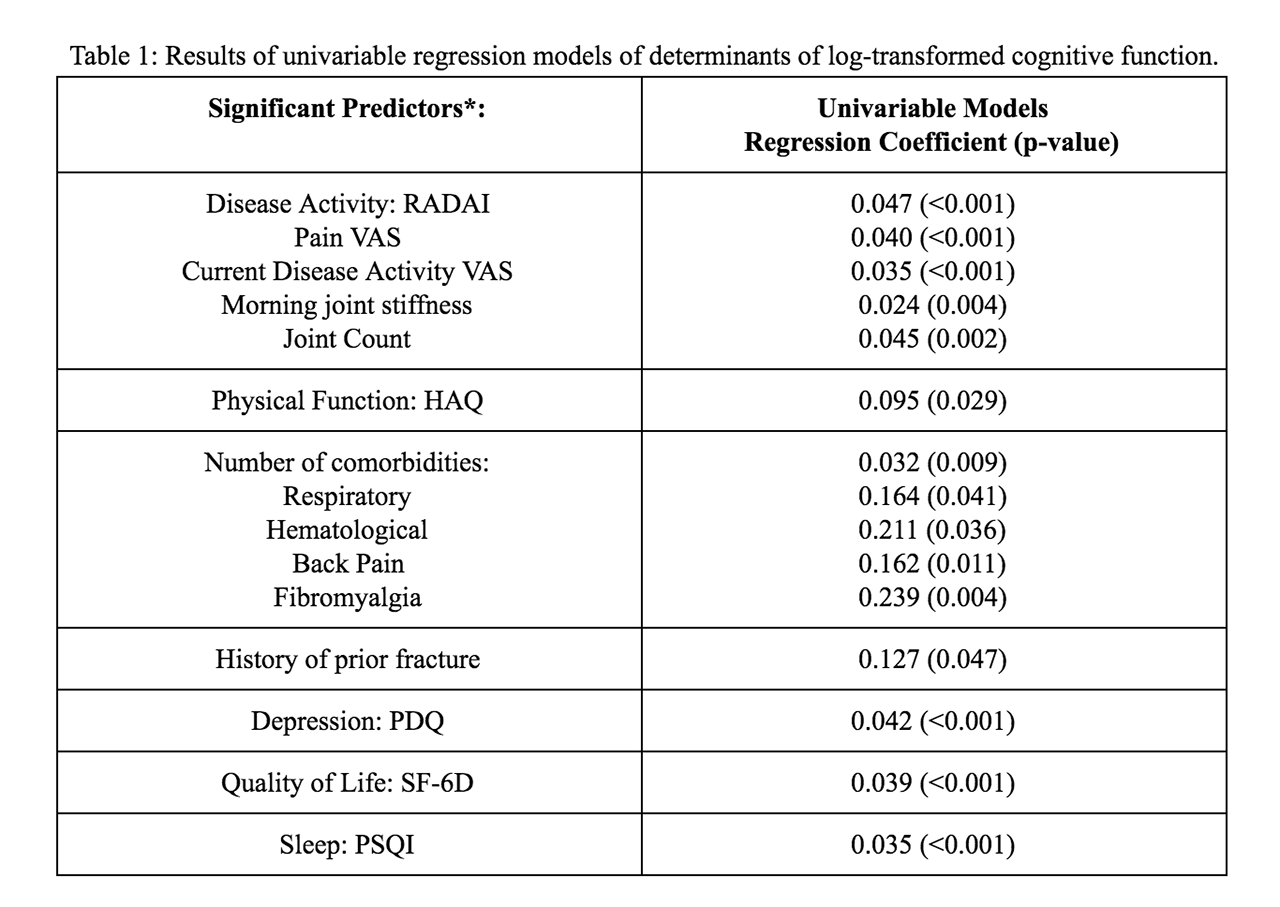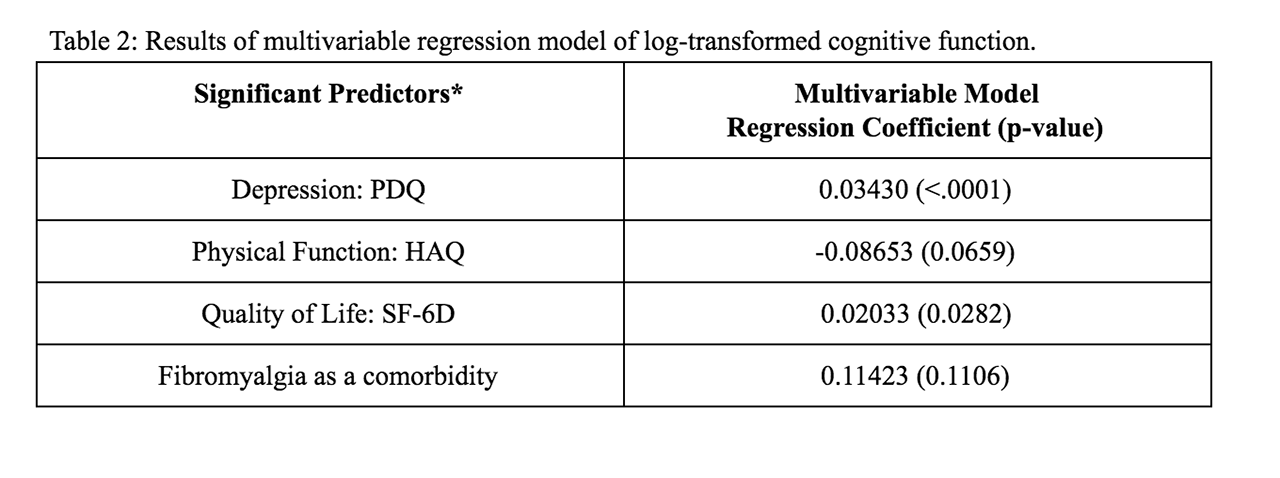Session Information
Date: Tuesday, November 12, 2019
Title: RA – Diagnosis, Manifestations, & Outcomes Poster III: Comorbidities
Session Type: Poster Session (Tuesday)
Session Time: 9:00AM-11:00AM
Background/Purpose: Cognitive impairment (CI), or “brain fog” as rheumatoid arthritis (RA) patients often describe it, is prevalent in persons with RA and can significantly impact daily life1. Despite this, the cause of CI remains poorly understood in persons with RA. This study aimed to identify the determinants of cognitive function in RA to help gain a better understanding of what might contribute to CI in some individuals.
Methods: A cross-sectional study was conducted using 2018 data from an annual survey administered to an RA cohort, derived from a population-based cohort identified using administrative health data. Participants completed self-report questionnaires assessing sociodemographics, and RA-specific information (duration, disease activity, pain, fatigue, physical function), comorbidities including depression, lifestyle factors (alcohol, smoking, physical activity, sleep), BMI, and quality of life. Cognitive function was measured with the Everyday Memory Questionnaire (EMQ), 13 Item Version. Descriptive statistics were performed to characterize all the parameters. Associations between cognitive function and potential determinants were first explored using univariable linear models. Multivariable linear regression analyses were then performed with variables found to be associated with cognitive function in the univariable models, using a stepwise selection at alpha=0.15. Models were natural log-transformed to normalize residuals.
Results: The sample was comprised of 145 RA patients (all women, mean age = 73.7 years; RA duration; 31.3 years). The mean global EMQ score was 21.9, with 43 (30% of the sample) classified as having some level of CI (score above 25). Of these 43, 34 (79%) showed moderate impairment (score 26-38), and 9 (19%) showed severe impairment (score at or above 39). Significant predictors identified in univariable analyses are listed in Table 1. In the multivariable model, physical function, quality of life, depression, and having fibromyalgia as a comorbidity remained independently associated with impaired cognitive function, model R2 is 0.3758 (Table 2).
Conclusion: CI was prevalent among our sample of patients with RA. Our findings suggest that measures of RA severity, such as poor physical function, and comorbidities, such as depression and having fibromyalgia, are associated with impaired memory in RA. Interventions that target CI, as well as pain and depression, require evaluation to help improve how CI is managed in RA.
- Szlachetka T, et al., Systematic review of studies reporting on cognitive function in rheumatoid arthritis compared to the general population [JRheum 2019 In press. Abstract from 2019 Canadian Rheumatology Association Annual Meeting)
*Alpha=0.05. Cognitive Function assessed with the global EMQ score, with higher scores associated with poorer cognitive function.
Abbreviations: RADAI – RA Disease Activity Index; VAS – Visual Analog Scale; HAQ – Health Assessment Questionnaire; PDQ – Perceived Deficits Questionnaire, SF-6D – Medical Outcomes Study 6-Item Short Form, PSQI – Pittsburgh Sleep Quality Index.
*Alpha=0.15. Cognitive Function assessed with the global EMQ score, with higher scores associated with poorer cognitive function.
Abbreviations: PDQ – Perceived Deficits Questionnaire; SF-6D – Medical Outcomes Study 6-Item Short Form; HAQ – Health Assessment Questionnaire.
To cite this abstract in AMA style:
Szlachetka T, Li L, Liu-Ambrose T, Xie H, Sayre E, Lacaille D. Determinants of Cognitive Function in Rheumatoid Arthritis (RA) Patients [abstract]. Arthritis Rheumatol. 2019; 71 (suppl 10). https://acrabstracts.org/abstract/determinants-of-cognitive-function-in-rheumatoid-arthritis-ra-patients/. Accessed .« Back to 2019 ACR/ARP Annual Meeting
ACR Meeting Abstracts - https://acrabstracts.org/abstract/determinants-of-cognitive-function-in-rheumatoid-arthritis-ra-patients/


